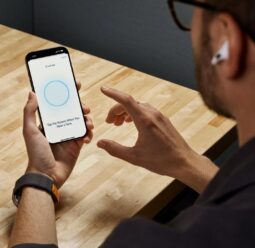Record gift gives hope to women with painful condition
Australia's largest known private investment in women's health will fund an institute dedicated to improving the lives of those living with endometriosis.
Australia's largest known private investment in women's health will fund an institute dedicated to improving the lives of those living with endometriosis.
Unable to access their usual doses of ADHD medication due to an international shortage, Australian children and teenagers face increasing risks of side effects.

More consumer technology is being approved for medical use in Australia, from earbuds that work as hearing aids to smartwatches that test for heart problems.
After more than a month of being confined in hospital while he battles double pneumonia, Pope Francis intends to offer a blessing from his hospital window.
A Holy Year mass for volunteers will go ahead without Pope Francis as he continues to recover in hospital from double pneumonia.
Pope Francis slept through the night as he continues to recover from double pneumonia, the Vatican says, as it prepares to celebrate Lent without the pontiff.
Pope Francis has had a quiet night in hospital and is resting, the Vatican says, as the pontiff remains in a critical condition battling double pneumonia.
More people have died and others are suffering from a disease associated with heavy rain in a region lashed by floods and tipped to cop even more downpours.
A social media influencer accused of drugging her baby to gain game online fame by manufacturing symptoms that led to surgery has been granted bail.
A suspended senior constable has tried to argue that he punched two intoxicated civilians while on duty in separate incidents in 2023 because of a brain tumour.
Australia has launched its first national autism strategy and action plan but some say it doesn't go far enough to improve inclusion and engagement.
A groundbreaking competitive swimming program designed for young people with severe cerebral palsy is reversing the motor decline associated with the condition.
The families of two Melbourne best friends fighting for life in Thai hospitals have raced to their bedside as they suffer from suspected methanol poisoning.
One in 8000 Australian babies will develop neuroblastoma or nerve cell cancer but if it's caught early, they can survive.
People with metastatic breast cancer often feel invisible but world-leading research to understand its prevalence could mean better support.
A decorated doctor says the death of 17-year-old boy from a severe allergic reaction could have been prevented if doctors had administered adrenaline earlier.

Could hearing aids and cochlear implants benefit from artificial intelligence technology? Google and Australian researchers have teamed to find out.
Changes to Australian privacy laws may not stop employers from requesting invasive medical tests with little explanation, a report has found.
A single cooling tower is thought to be the cause of an outbreak of legionnaires' disease that is expected to grow in coming days.
Calls for a tax on sugary drinks have won the support of a federal parliamentary committee among its recommendations to combat diabetes and obesity.
The number of different types of leave available to workers is becoming "ridiculous", a Liberal senator has told a parliamentary inquiry.
Researchers have received $4 million to work on a treatment they hope will slow or stop Parkinson's disease by targeting gut health.
Queensland rugby league legend Wally Lewis has opened up on his battle with brain injury CTE, in a call for funding and more research into the disease.
Cricket great Allan Border has joined with Parkinson's Australia to bring awareness to the disease that impacts over 150,000 Australians.
A Queensland coroner is examining the circumstances surrounding asylum seeker Faysal Ishak Ahmed's death on Manus Island in 2016.

Two Australians, rescued in different ways by smartwatch technology, will tell their stories in short films created by Apple.
Melbourne researchers from the Baker Heart and Diabetes Institute have found a way to regenerate insulin production in damaged pancreatic cells.
Better access to nature and green spaces in the country may lower the risk of dementia, researchers say.
It's estimated one in seven Australian women aged 44–49 live with a painful inflammatory condition and patients are being diagnosed at an earlier age.
A newly-funded sleep program is linking western and Indigenous knowledge to treat the medical condition of sleep apnoea in regional First Nations communities.
Broncos hooker Billy Walters says the NRL is acting appropriately to prevent CTE, after Wally Lewis was diagnosed with a probable case of the form of dementia.